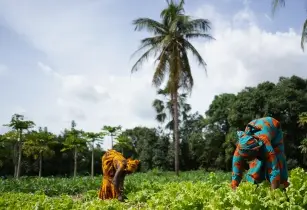The Government of Zimbabwe through the Ministry of Lands, Agriculture, Fisheries, Water and Rural Resettlement (MoLAFWRR) with technical support from FAO has launched a Technical Cooperation Programme (TCP) with an aim to strengthen agricultural extension services in Zimbabwe
The objective of the project is to improve access to extension and advisory services by smallholder agricultural producers in the country. The TCP, funded to the tune of US$500,000 will be implemented from January 2021 to December 2022 in four districts namely Uzumba Maramba Pfungwe and Mutoko in Mashonaland East province and Hurungwe and Chegutu in Mashonaland West province.
Dr John Basera, permanent secretary in the MoLAFWRR, officially launched the project virtually.
“The government of Zimbabwe is very much aware of the critical and pivotal role agricultural extension and advisory services play in imparting practical knowledge and skills to farmers and are some of the key drivers of agricultural growth in the various plans and strategies. The extension capacitation drive entails increasing the mobility of extension staff through provision of motorcycles and fuel, increased interventions towards appropriate and relevant training opportunities as well as equipping extension officers with digital technologies for effective technical backstopping of farmers to adopt Good Agricultural Practices,” said Dr Basera in his keynote address during the launch.
Revamping the agricultural sector is critical for reviving Zimbabwe’s economy. Frequent droughts and unstable macroeconomic conditions have continued to hinder the country’s ability to effectively deal with the pervasive low productivity in the sector resulting from many factors including, high cost of inputs, inadequate availability of quality inputs, unstable prices, liquidity challenges and weakened extension system. The Government of Zimbabwe with support from FAO has taken major steps in this by outlining the intentions and strategic focus for steering and implementing the Agriculture and Food Systems Transformation Strategy (2020-2030).
“The project will provide technical assistance to some innovative options to deal with the systemic extension challenges in the medium to long term. This initial technical assistance will prioritise enabling of extension services to reach more smallholder farmers, innovate with ICT platforms and support the initial steps for digitalisation of the extension system,” said Berhanu Bedane country representative for Zimbabwe.
“The project will also cover the soil fertility enhancement initiative (soil pH correction blitz) which will equip ten decentralised soil testing facilities throughout the country. In addition, farmers will be trained on emerging issues relating to climate proofing, agro-ecology and soil pH correction to enhance productivity,” he concluded.





